
Hebrew Mazal Tov Congratulations Greeting And Sunflowers Bouquet Stock
(in a Jewish context) Used to express congratulations or good wishes, especially at weddings. (chiefly in non-Jewish contexts) Used to sarcastically express congratulations for an unimpressive accomplishment or in order to dismiss an accomplishment. Usage notes [ edit]

Mazel Tov. Traditional Jewish Greetings. Congratulations. Ink
" Mazel tov " ( Yiddish: מזל טוב, romanized : mázl tov) or " mazal tov " ( Hebrew: מזל טוב, romanized : mazál tov; lit. "good fortune") is a Jewish phrase used to express congratulations for a happy and significant occasion or event. Etymology and pronunciation
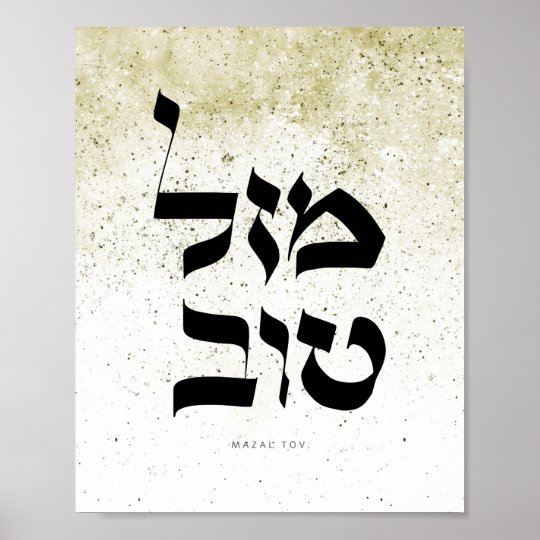
Mazal Tov,מזל טוב, Hebrew Calligraphy,Wall Art Poster
Textual Hebrew; Yiddish; Modern Hebrew; Etymology. TH מזל טוב > MH מזל טוב mazál tov, lit. 'good fortune', Y מזל־טובֿ mázl-tov. mazl tov, mazal tof, mazal tov, mazel tov, mazol tov, mazeltof, mazeltov, mazel toff. Edit Something missing from this entry? Inaccurate? Feel free to suggest an edit. About Us;

Hebrew Mazal Tov Congratulations Greeting And Sunflowers Bouquet Stock
Answer: Your confusion is understandable. The Talmud —the ancient encyclopedia of Jewish wisdom—seems to contradict itself on the issue. In one place it states, "On your birthday, your mazel is strong." Elsewhere the Talmud reports, "The Jewish people are not subject to mazel "! The word mazel literally means "a drip from above."

Personalised Mazel Tov Cake Topper, Jewish Holiday, Hebrew Congratulat
Shabbat For the Sabbath, there are several ways to greet people in a variety of languages, including Hebrew, Yiddish, and Ladino . Holidays For different chagim and Yom Tov there are different expressions used. Greetings and farewells There are several greetings and good-byes used in Hebrew to say hello and farewell to someone. Phrases
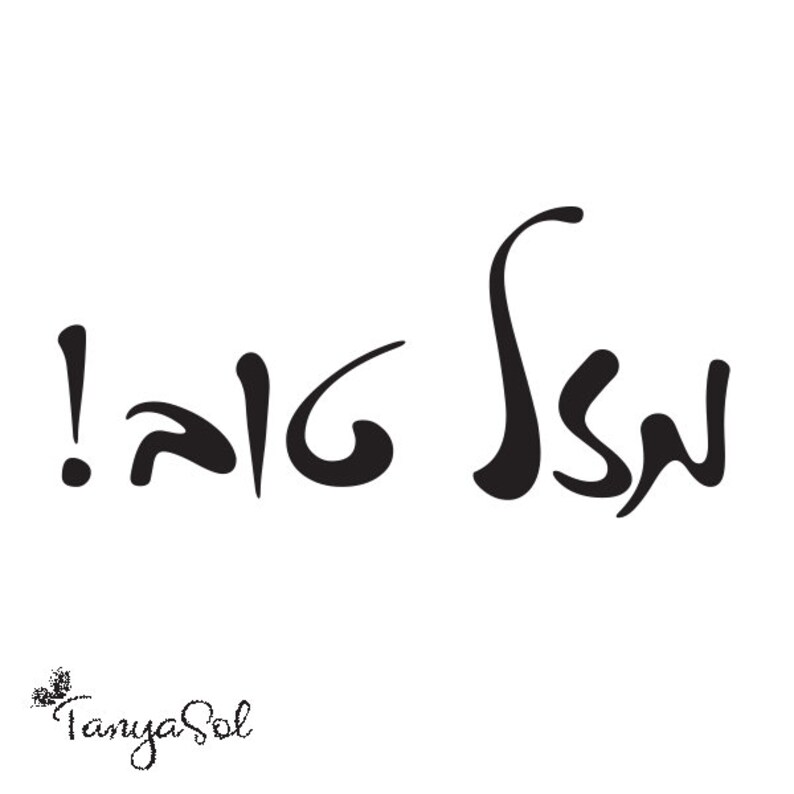
Mazal Tov Hebrew Stamp Congrats Stamp Hebrew polymer stamps Etsy
In Hebrew, mazel tov means "good luck" but it is used as a way to say "congratulations!" Some people - usually Ashkenazi Jews - will say MA-zel tov, while Israeli or Sephardic Jews will say ma-ZAL tov, emphasizing the last few letters when pronouncing it.
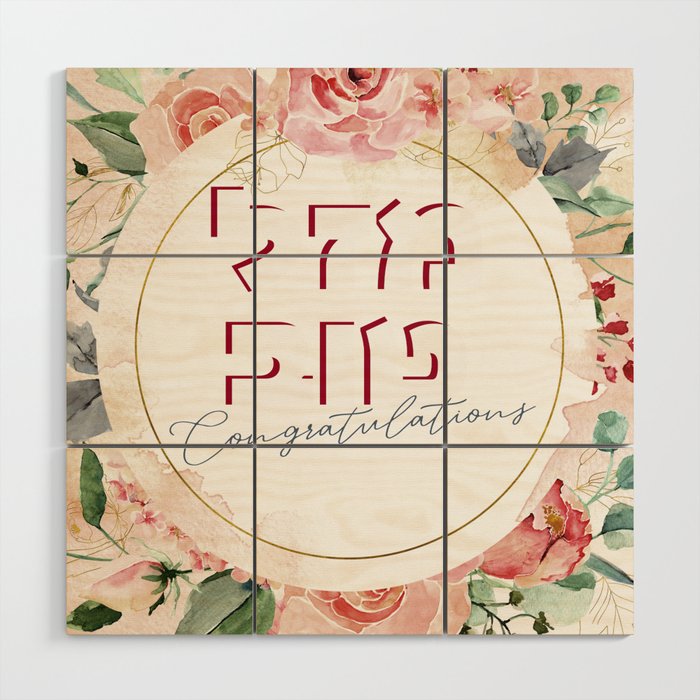
Hebrew Mazal Tov Congratulations! Watercolor Art Wood Wall Art by
"Mazal Tov" is a Hebrew phrase that translates to "good luck" or "good fortune." However, its true essence goes beyond luck as a random occurrence. The word "mazal" has its roots in astrology and the ancient belief that each person's destiny is influenced by the alignment of the stars and constellations at the time of their birth.

Mazal Tov! Congratulations! Hear the Hebrew audio at http//www.in
00:00 00:00 Today's episode is all about "mazal tov." How do we congratulate friends who have a newborn baby? And what do you say when you're not sure if it's a boy or a girl, in a gender-based language like Hebrew? Host Guy Sharett has all the answers. New words & expressions: Mazal tov - Congratulations - מזל טוב

Hebrew Mazal Tov Congratulations! Watercolor in 2020
Haaretz. May 11, 2016. Today's episode is all about "mazal tov." How do we congratulate friends who have a newborn baby? And what do you say when you're not sure if it's a boy or a girl, in a gender-based language like Hebrew? Host Guy Sharett has all the answers.
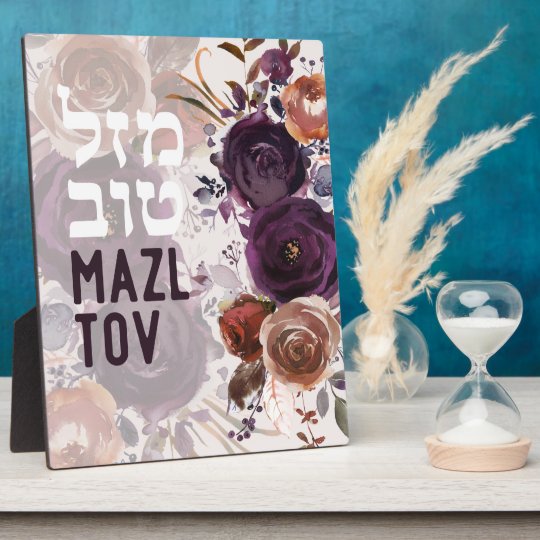
Congratulations! Mazal tov in Hebrew Watercolor Plaque
This term can also be spelled mazal tov, mazl tov, or mazel tof though this is last place in popularity. You might hear the Hebrew phrase mazel tov at a Jewish wedding, the end of military service, at festivals or a congregation, by guests of a bat mitzvah or bar mitzvahs, at brit milah (bris) ceremonies, a birthday, graduation, engagement, or.
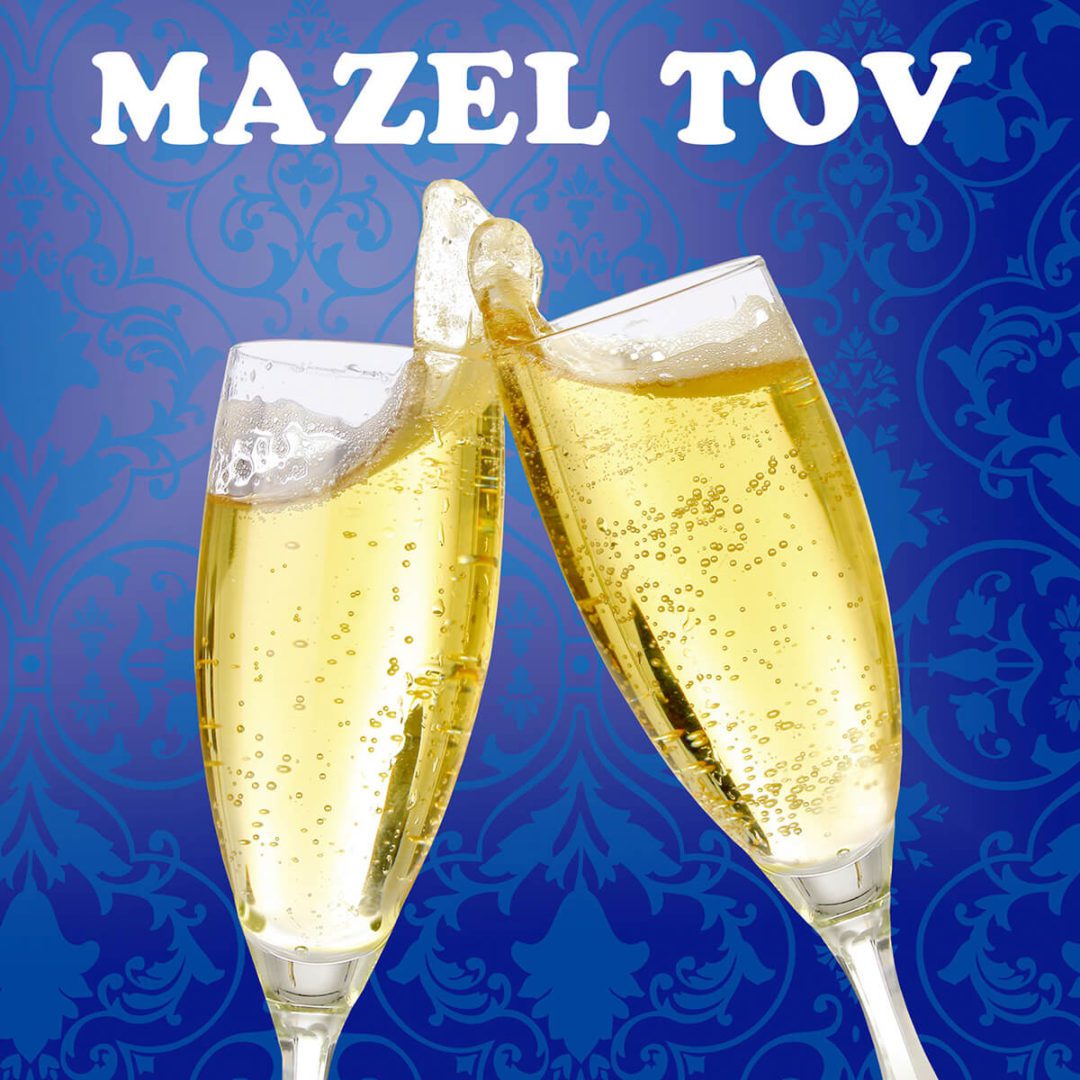
Mazel Tov Greeting Card Davora Trade Website
The Hebrew phrase mazel tov (also spelled mazal tov, or mazel tof) literally translated means "good luck." In practice, mazel tov is usually said to mean "Congratulations!" In modern Israeli pronunciation, it is said with the accent on the second syllable: ma-ZAL tove. In Yiddish and Ashkenazi pronunciation, the accent comes on the.

93 Mazel Tov Mariage Images, Stock Photos & Vectors Shutterstock
Bride's Veil. The veil is one of the most significant elements of the bride's outfit, at least for the traditional Jewish ceremony. Veil in Hebrew is הינומה (pronounced: he-nuh-mah) and you can find a number of lengths, textures, and materials. As long as it covers the face of the bride, allowing the husband/other bride to see just.

Mazal Tov Greeting Card. Handwritten Congratulations In Hebrew Stock
In Hebrew, it translates to: mazal tov, and in Yiddish, it's spelled mazel tov. While there is very little difference in the two spellings, when written, it may give clues to the origin of the author or translator. Literally, the translation in either language is "good luck." But the true meaning is somewhat more subtle.

Mazel Tov. Traditional Jewish Greetings. Congratulations. Ink
Rather than saying Mazal Tov, the appropriate wish to expecting parents is Beshaah Tovah - all should proceed at the right time: the pregnancy should be smooth, the baby should be healthy and the birth should be without complication. These are wishes for the future rather than blessings for the past, more a prayer than a congratulation.

Congratulations! Mazal tov in Hebrew Watercolor Plaque Hebrew Mazl Tov
Mazal: a) A medium that conveys spiritual influence to worldly beings; in its Talmudic usage, the celestial constellations that serve this purpose. b) The root or main part of the soul, which is not experienced consciously. Related Topics Zodiac (11) What Can I Do about My Bad Luck? (Q & A) By Chaya Sarah Silberberg

Mazal Tov Congratulations Hebrew Text Linocut Stock Illustration 694216621
Mazel tov is a familiar phrase often heard at Jewish celebrations, but its meaning and origins may not be well-known to everyone. Commonly interpreted as "congratulations," this term originating from late Hebrew actually has a more nuanced meaning.Literally translated, mazel tov means "good luck" or "good fortune," but its usage implies a sense of acknowledging that good fortune.